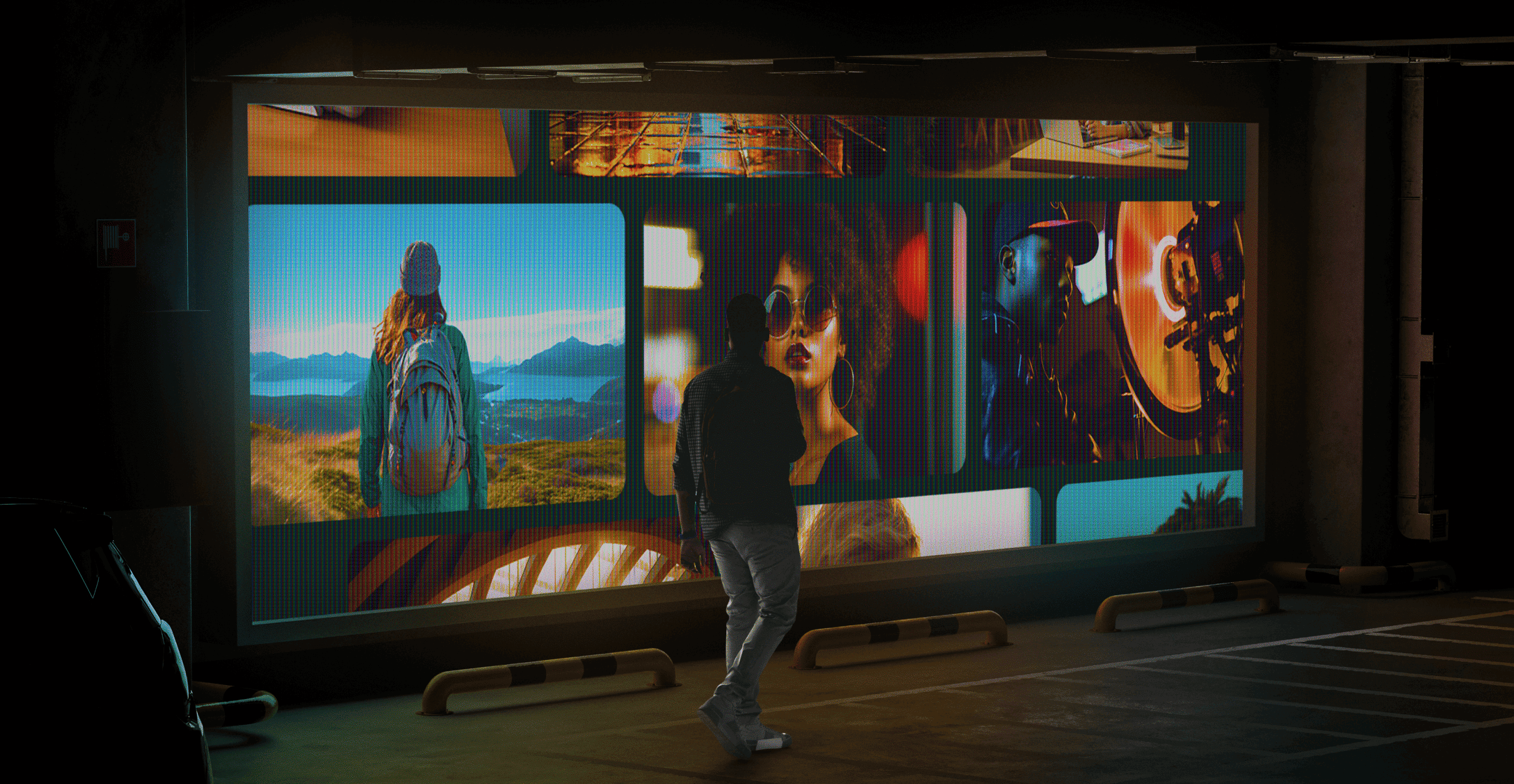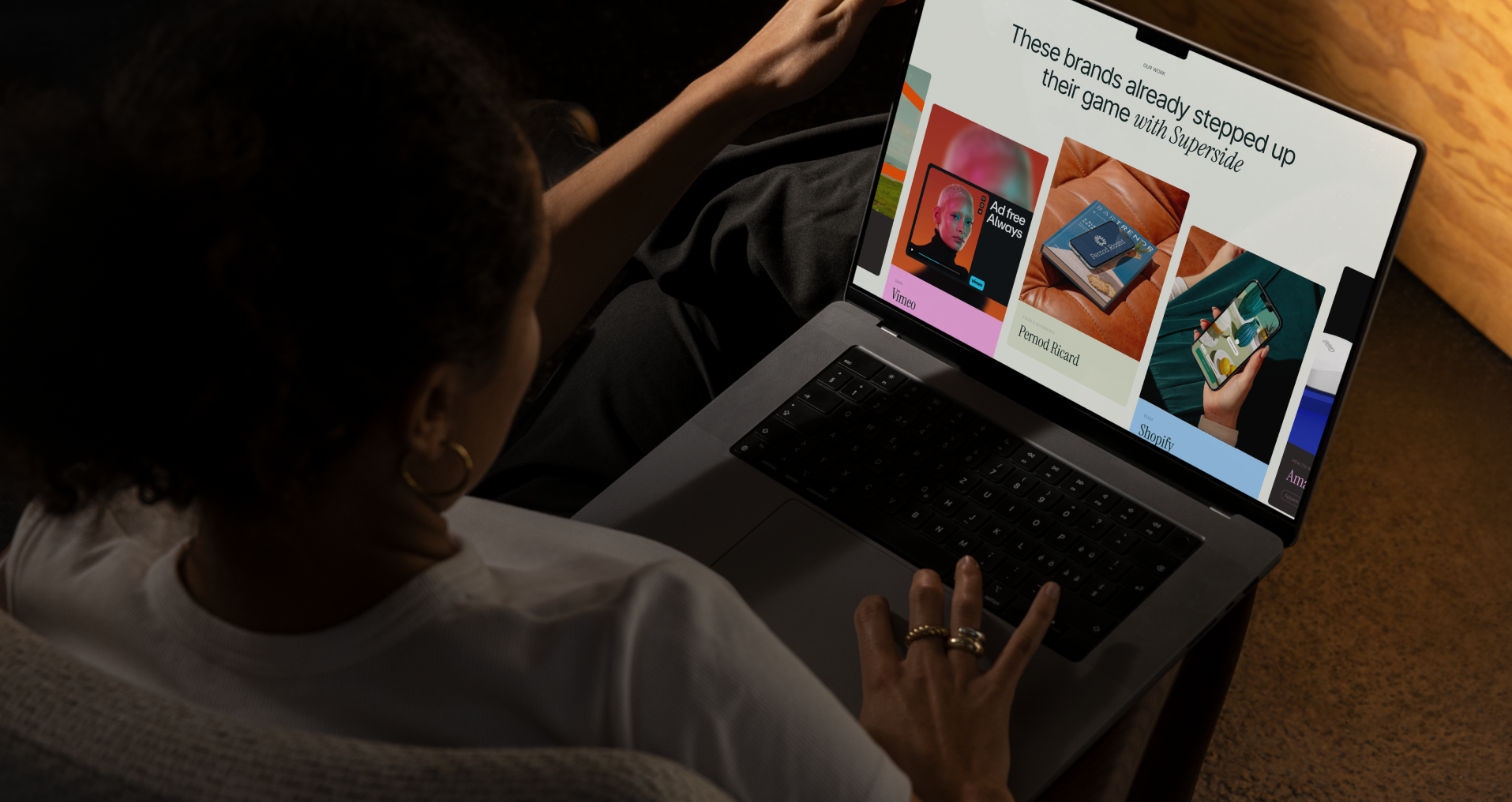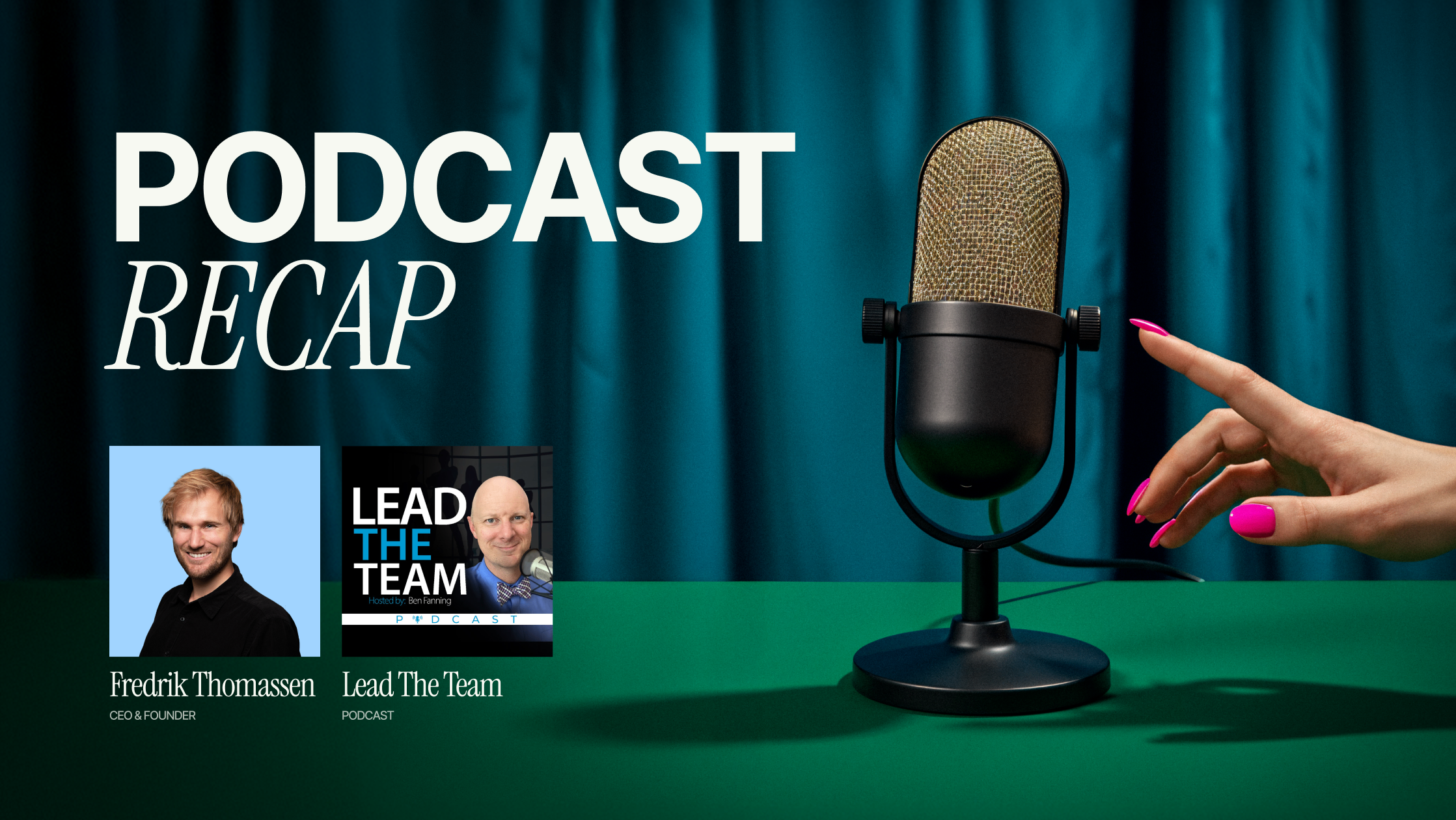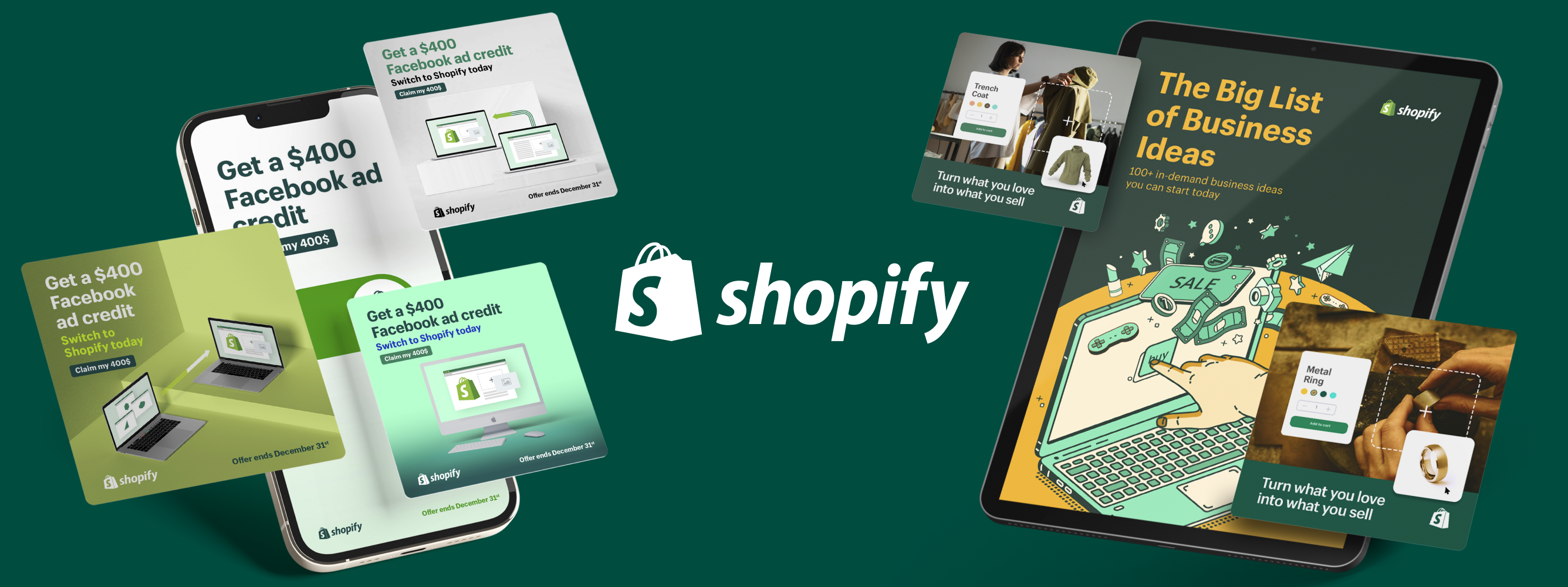Scaling Design as an Enterprise: 3 Ways to Accelerate to Warp Speeds


Design moving at glacial speeds? Though even mighty enterprises may not have the budget to hire in-house right now, there are other ways to accelerate design at scale, including maximizing the efficiency of your creative operations, outsourcing to a flexible creative partner and implementing agile, cross-functional squads.
There’s a law in marketing and design: The more people involved in a project, the slower it will get done.
At the enterprise level, this law is amplified tenfold. With dozens of marketers, designers and stakeholders involved in competing projects, execution can slow to glacial speeds. Under the immense pressure of an enterprise’s scope of work, teams creep along a few inches a day.
Today, creeping along doesn’t cut it.
Not only does the current market demand agility, modern marketing teams need increasing volumes of high-quality creative to feed their multi-channel flywheels and have any chance at driving growth. So, the challenge becomes scaling design to deliver on those needs.
Of course, between budget cuts, hiring freezes and widespread layoffs, the days of throwing bodies at a problem are over. Instead, consider the following solutions to accelerate design at scale:
1. Invest in DesignOps
In recent years, design operations (or DesignOps) has become an essential function for businesses amping up creative production. From Airbnb and Lyft to LinkedIn and Intercom, dedicated DesignOps drive greater efficiency at scale.
If you’re unfamiliar with the function, DesignOps is responsible for streamlining creative operations by planning projects, optimizing workflows, managing resourcing, fostering relationships and more. Basically, professionals in this role do their utmost to help design teams focus on creative work.
You can see how this function would be especially beneficial in times like these. By investing in DesignOps, marketing and creative teams can achieve:
- Faster time-to-market for launching campaigns
- Cost-efficient creative production and better ROI
- Greater resilience to surprise asks and change orders
- More creative capacity through increased efficiency
Melanie Brook, Principal of Creative Operations at LegalZoom and former Brand Producer at Intercom, considers DesignOps the key to effective collaboration between marketing and design. Back when she was at Intercom, Brook was one of four Brand Producers on a creative team of 14.
As you can see, Intercom’s brand team had an almost one-to-one ratio of producers to designers and this was their superpower! With such strong DesignOps, Intercom’s brand team could execute faster and with more accuracy than larger, but less well-operationalized teams.
Nonetheless, there are limits to what strong processes and project management can solve. Often, volume simply outstrips capacity, or internal teams don’t have the right skill sets for a project. In these instances, Brook and her fellow producers at Intercom turned to Superside. Which brings us to our next piece of advice: Outsource to achieve scale.
2. Outsource to Achieve Scale
According to a recent report, nearly 86% of in-house design teams are already using external partners, while another third plan to increase the amount of work they outsource. It’s clear a hybrid model of insourcing and outsourcing is on the rise, and it’s no surprise given today’s hiring constraints paired with the ever-increasing need for high-quality creative.
The key to successful outsourcing? Finding a creative partner that can provide the speed, scale and flexibility needed to drive growth. Traditionally, your options were to hire freelancers or an agency, but we all know the downfalls of these approaches. From unreliability and slow turnaround times to inflexibility and obscene price tags, these options don’t cut it for mid-market businesses, let alone enterprises.
Thankfully, there’s a better way to get the creative you need nowadays. At Superside, we call it Creative-as-a-Service (CaaS). Just like SaaS, our CaaS model is subscription-based, hassle-free and infinitely scalable.
By leveraging CaaS, enterprise teams can move just as fast as startups, with more ability to scale—a big win, win in a volatile economic climate that demands adaptability and agility. (Plus, DesignOps is baked right in, so if you haven’t invested in this function yet, we have you covered!)
It all boils down to knowing what to insource vs. outsource. Early or growth-stage startups often outsource to supplement their lean internal teams. By taking a CaaS approach, a mid-market or enterprise-sized company could outsource and scale many more activities, while letting in-house teams stay laser-focused on key objectives.
Here are some of the possibilities that open up with CaaS:
3. Try Project-based Squads
In a study on redesigning the design department, McKinsey identified organizational integration as the hallmark of success. Simply put, design teams do best when they’re part of the greater business, not hidden away behind the walls of a design studio.
Specifically, McKinsey highlighted the benefits of cross-functional organizational structure at scale saying, “The best design teams had designers organized with dotted lines to their design departments but hard lines to their project team. All project team members—including designers, marketers, financiers, and project managers—had a common set of financial incentives around time, cost, revenue and customer satisfaction.”
There are two important points here:
- Designers as part of cross-functional project squads.
- Designers sharing goals with their squads.
By taking a project-based squad approach, design departments can stay flexible and contribute resources to projects as needed, all while exposing team members to different parts of the business. Meanwhile, shared goals create accountability and ensure everyone is pulling in the same direction.
At Superside, we’ve implemented these concepts using an “AstroPod” model. Basically, AstroPods are agile, cross-functional squads dedicated to specific problem areas. Each pod consists of an overall leader, a project manager (PM), a creative lead and supporting team members.
Regardless of whether your design organization is centralized or decentralized, hybrid or agile, a model like this can work. And for businesses designing at scale, this type of smaller, specialized squad model can be invaluable for maintaining velocity and quality. (Notice how it accounts for DesignOps, too!)
Scale Design to Warp speeds
In the best of times, scaling design isn’t easy. In the current high-pressure, low-resource environment, this task has become even more challenging.
But like a glacier, given the right inputs, you can take your team from inching along to moving 30 meters a day.
Though even mighty enterprises may not have the budget to hire in-house right now, there are other ways to accelerate design at scale, including maximizing the efficiency of your creative operations, outsourcing to a flexible creative partner and implementing agile, cross-functional squads.
And even if you do have a hire or two in your budget, all of these steps are well worth taking. Just look at Intercom—they’re able to accomplish more with a team of six designers, four DesignOps professionals and Superside support than teams twice their size. 💪
You may also like these

7 top creative support solutions for teams and enterprises
There’s no denying that today’s marketing and creative teams are under more stress than ever. To deliver high-performing, top-quality assets at scale, many teams are getting fewer resources, smaller budgets and tighter deadlines.As an ever-increasing number of brands compete for audience attention, the demand for compelling content is getting higher—and essential for creative teams to meet.It’s no surprise then that in-house marketing and creative teams are turning to advanced creative support solutions to help enhance efficiency, streamline workflows and optimize production processes.From AI-powered design to cloud-based collaboration software and outsourced creative services, these solutions transform how teams work, allowing them to produce more assets faster without compromising quality.Our best advice to teams and enterprises on how to get this right? Make Superside your creative team’s creative team and free up your team to do their best work.
How to find creative partner agencies to boost 2025 strategy
Are your internal creatives battling to keep up as the demand for authentic, trustworthy content grows? For many brands, outsourcing creative makes sound financial sense. Plus, partnering with an experienced creative services team can bring fresh ideas and impressive scalability.80% of customers say that the experience a company provides is just as important as its products or services, meaning that driving great customer experiences is essential in 2025. Once again, creative partnerships pay dividends, as many creative agencies go well beyond KPIs to drive genuine cultural impact and build trust.Unlike traditional agencies, creative partner agencies also typically act as an extension of your team. Work with Superside, for example, and our talented designers will become your creative team’s creative team.
6 Social Media Design Trends Defining Engagement in 2025
In 2024, brands used engaging user-generated content (UGC) in their marketing strategies, with TikTok lookalike contests and the AI ‘90s yearbook challenge trend sparking significant social media engagement. Pepsi leaned into nostalgia for its rebrand, while Starface turned functional skincare into a fashion statement.In a content-saturated world, brands must keep up with social media graphic design trends to stand out and remain relevant. As converting followers into customers grows more challenging, creating distinctive, scroll-stopping content can help your brand cut through the noise.Collaborating with a fully managed team of creatives who understand the latest social media design trends is an excellent place to start.And who better to guide us through this year’s key trends than Superside’s Executive Creative Director, Kae Neskovic, and Juan Cistoldi, Creative Strategist.Let's dive in:










